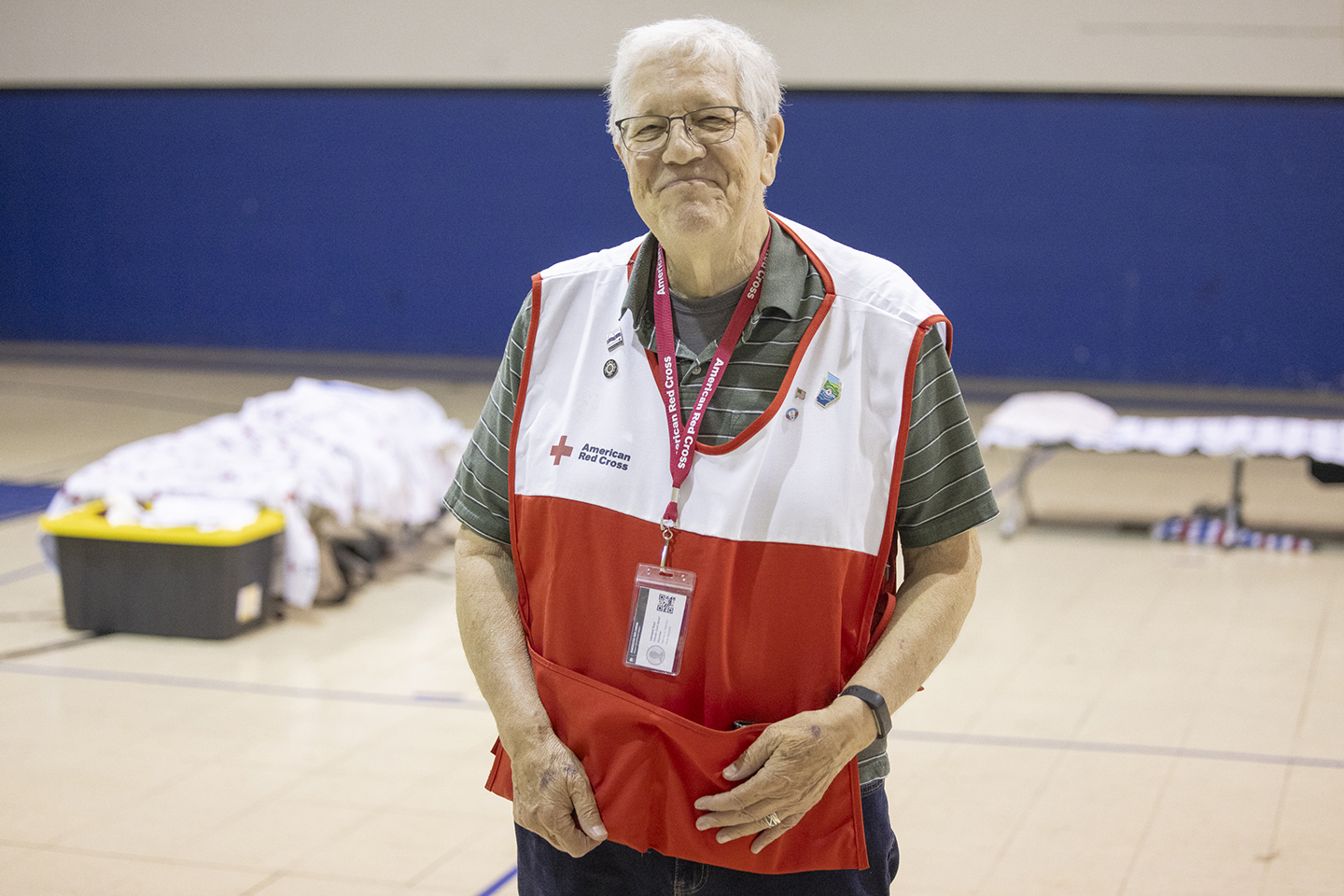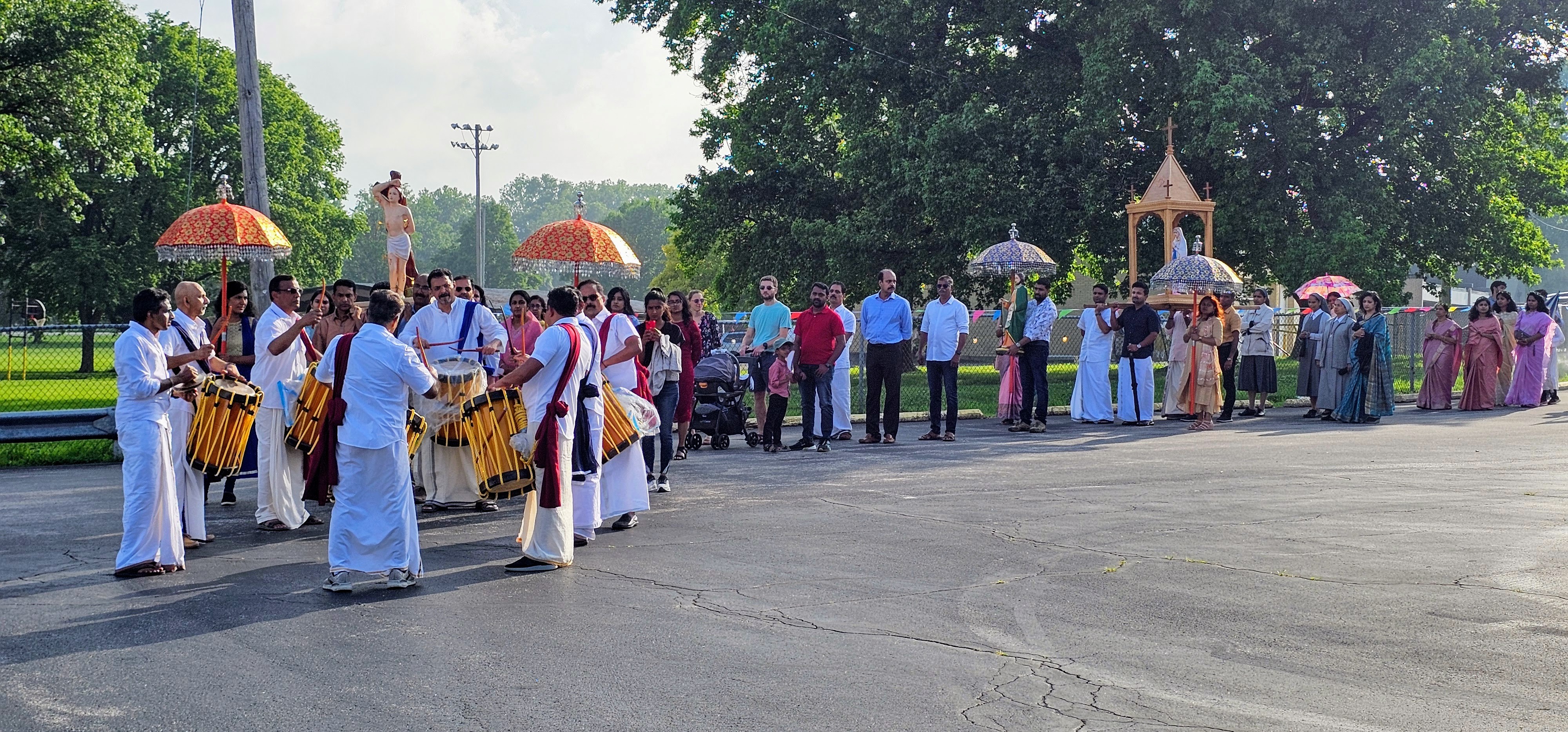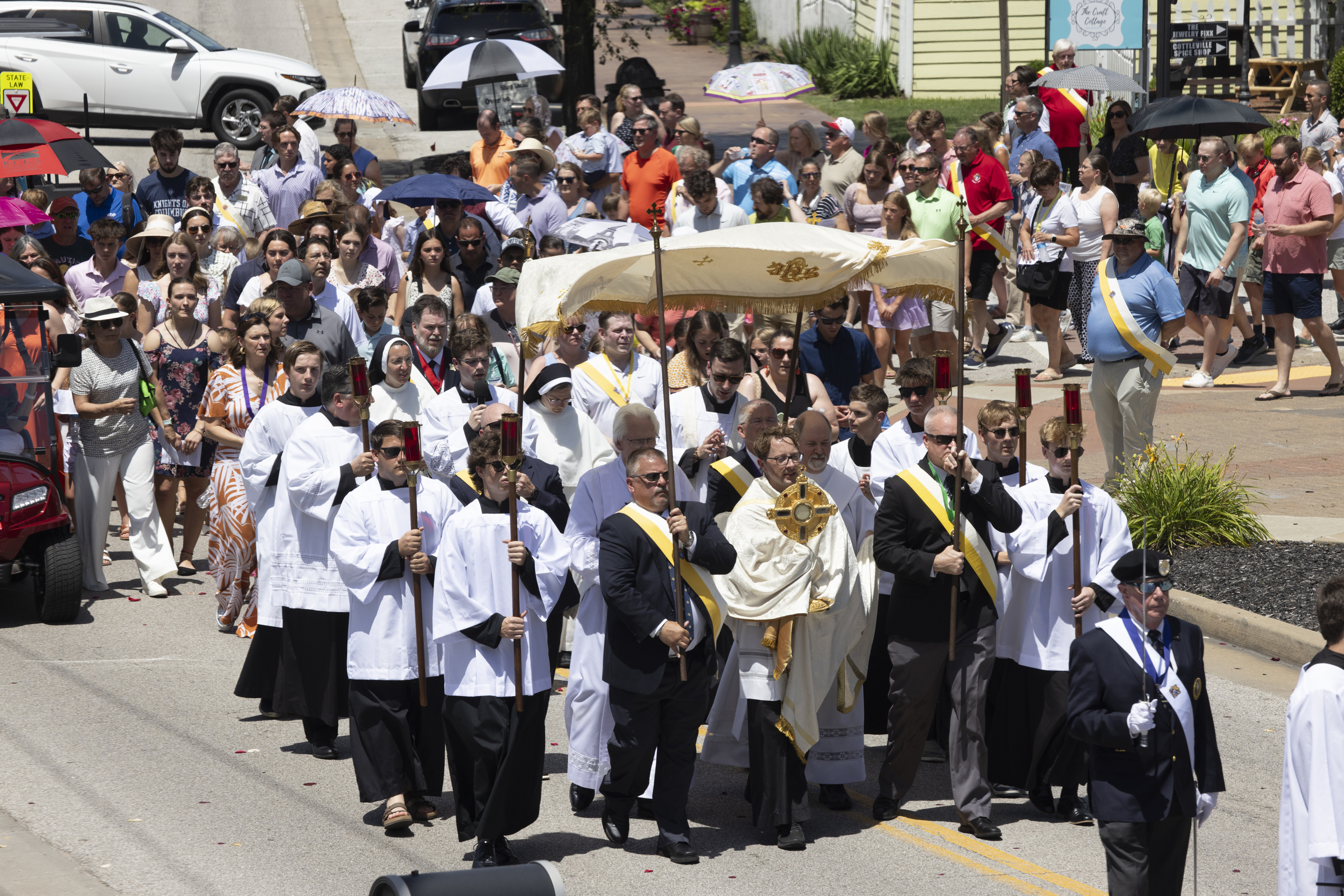Father Seiler heading to Africa to serve as a papal diplomat
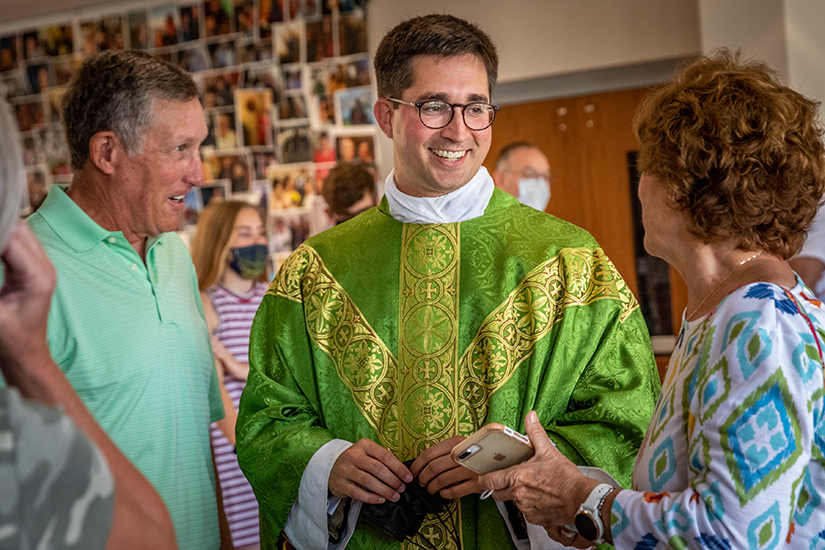
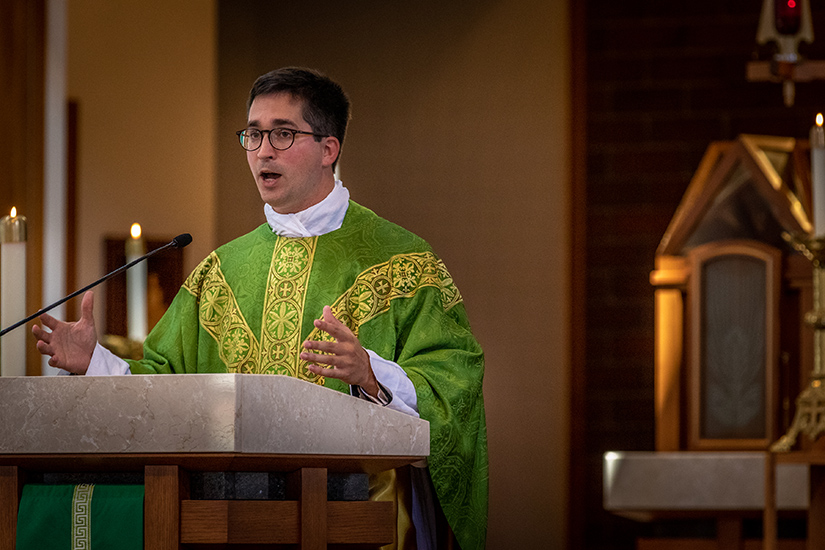
After learning of his recent assignment as a papal diplomat to the African nation of Angola, Father Christopher Seiler looked up the top 10 food items in that country. The tenth, fried caterpillars, made him already start to miss toasted ravioli.
In the seminary, the idea of serving anywhere but in St. Louis “never crossed my mind,” Father Seiler recalled. It’s about 22 hours of travel to his new assignment compared to about two hours from his home parish to the farthest parts of the archdiocese.
“When I entered the seminary and was discerning my vocation, deciding to become a diocesan priest, I always desired and hoped to be a parish priest working in the archdiocese with the people who inspired my vocation,” he said.
The Vatican asked for Father Seiler to be formed as a papal diplomat and, with the agreement of the archbishop, he accepted the invitation. “I’m happy to do it,” he said. “It’s an important service to the Holy Father in building up the unity of the Church. It’s a great honor to serve.
“It’s definitely been a whirlwind and unexpected. But that’s the adventure of following Jesus, you never know where you’re going to be asked to go.”
Diplomatic service
Father Seiler, ordained in 2013, spent the last four years in Rome attending the Pontifical Ecclesiastical Academy, a house of formation dedicated to preparing priests to work in the diplomatic service of the Holy See. He completed a doctorate in canon law in May.
On July 1, he received his assignment to serve as the attaché to the Apostolic Nunciature in Angola, Africa. There he will collaborate with the nuncio, the Pope’s ambassador, Archbishop Giovanni Gaspari. The nunciature also represents the Holy Father in the island nation of São Tomé and Príncipe off the west coast of Africa.
Previously, he said, “I hadn’t thought too much of either place. I’d heard of them, Angola especially. It’s a fairly large country, 34 million. It’s somewhat well-known because it has a booming oil industry and also a lot of diamonds come from there. There was a long civil war that only ended in 2002,” he explained.
Father Seiler has learned to speak Italian, Spanish and French. When he was given his appointment, the Archbishop from the Secretariat of State joked that he was chosen to go to Angola to work on Portuguese, the primary language spoken there.
A nunciature shares in the pope’s mission as the supreme pastor of the Church and supports the local churches, promoting the unity of the Church. The nunciature prepares for the appointment of new bishops when there are vacancies, a lengthy process involving much consultation. In mission territories, the nunciature helps in the distribution of the funds from mission collections, ensuring they go where they are needed to assist the spread of the Gospel.
The second function of the nunciature is to represent the Holy See to the local government. “First and foremost, it’s working to ensure the Church has freedom to carry out her saving work and mission,” Father Seiler said. “Also, it’s working to promote peace, to promote integral human development and do what we can to help, especially those most beloved to the Lord, the poorest of the poor. We work, in whatever way possible, to promote healthy civic life.”
St. Louis connection
Father Seiler is the son of John and Reine Seiler of Holy Spirit Parish in Maryland Heights. His older brother and sister-in-law, Matthew and Kristen, live in Arkansas, and his younger brother and sister-in-law, Jacob and Molly, live in St. Louis.
Father Seiler was in his third year as associate pastor of St. Gabriel the Archangel Parish in St. Louis in 2017 when he received the invitation from the Vatican. Prior to ordination, he earned a bachelor’s degree in philosophy from Cardinal Glennon College. While a seminarian at the North American College in Rome he completed a bachelor’s degree in sacred theology from the Pontifical Gregorian University, and a licentiate in dogmatic theology from the Pontifical Lateran University. The best thing about Rome, he said, is “the tangible witness of the saints and all the churches, to be able to pray regularly at Peter’s tomb, at the tomb of St. Paul. The last four years I lived across the square from the church where St. Catherine of Siena is buried. The witness of the saints is extraordinary.”
The gelato is not bad, but it’s not as good as Ted Drewes frozen custard, he said.
St. Louis will always be home. He stayed up all night in Rome watching the Blues win hockey’s Stanley Cup in 2019. While home here for a visit this summer, he’s attended a couple of Cardinals baseball games.
He feels blessed to be from such a vibrant local Church in St. Louis, he said, “and I think we are very blessed to have so many faithful priests and lay members of the faithful who love Jesus and love His Church. I am happy I will always be incardinated as a priest of St. Louis. No matter where I go serving the universal Church, I always keep that connection with the St. Louis Archdiocese.”
>> Angola
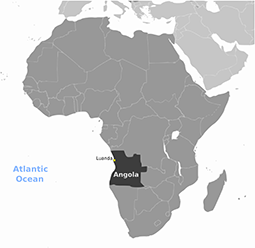
Location — Southern Africa, bordering the South Atlantic Ocean, between Namibia and Democratic Republic of the Congo
Religions — Roman Catholic 41.1%, Protestant 38.1%, other 8.6%, none 12.3% (2014 est.)
Languages — Portuguese 71.2% (official), Umbundu 23%, Kikongo 8.2%, Kimbundu 7.8%, Chokwe 6.5%, Nhaneca 3.4%, Nganguela 3.1%, Fiote 2.4%, Kwanhama 2.3%, Muhumbi 2.1%, Luvale 1%, other 3.6% (some respondents gave more than one answer)
Ethnic groups — Ovimbundu 37%, Kimbundu 25%, Bakongo 13%, mestico (mixed European and native African) 2%, European 1%, other 22%
Demographic profile — More than a decade after the end of Angola’s 27-year civil war, the country still faces a variety of socioeconomic problems, including poverty, high maternal and child mortality, and illiteracy. Despite the country’s rapid post-war economic growth based on oil production, about 40 percent of Angolans live below the poverty line and unemployment is widespread, especially among the large young-adult population. Only about 70% of the population is literate, and the rate drops to around 60% for women. The youthful population — about 45% are under the age of 15 — is expected to continue growing rapidly with a fertility rate of more than five children per woman.
Climate — semiarid in south and along coast to Luanda; north has cool, dry season (May to October) and hot, rainy season (November to April)
>> São Tomé and Principe
Location — Central Africa, islands in the Gulf of Guinea, just north of the Equator, west of Gabon
Religions — Catholic 55.7%, Adventist 4.1%, Assembly of God 3.4%, New Apostolic 2.9%, Mana 2.3%, Universal Kingdom of God 2%, Jehovah’s Witness 1.2%, other 6.2%, none 21.2%, unspecified 1% (2012 est.)
Languages — Portuguese 98.4% (official), Forro 36.2%, Cabo Verdian 8.5%, French 6.8%, Angolar 6.6%, English 4.9%, Lunguie 1%, other (including sign language) 2.4%; note: shares sum to more than 100% because some respondents gave more than one answer on the census; other Portuguese-based Creoles are also spoken (2012 est.)
Ethnic groups — Mestico, Angolares (descendants of Angolan slaves), Forros (descendants of freed slaves), Servicais (contract laborers from Angola, Mozambique, and Cabo Verde), Tongas (children of servicais born on the islands), Europeans (primarily Portuguese), Asians (mostly Chinese)
Background — Portugal discovered and colonized the uninhabited islands in the late 15th century, setting up a sugar-based economy that gave way to coffee and cocoa in the 19th century — all grown with African plantation slave labor, a form of which lingered into the 20th century. While independence was achieved in 1975, democratic reforms were not instituted until the late 1980s. The country held its first free elections in 1991, but frequent internal wrangling between the various political parties precipitated repeated changes in leadership and four failed, non-violent coup attempts in 1995, 1998, 2003 and 2009.
Source: The World Factbook
Father Christopher Seiler celebrated Mass at his home parish, Holy Spirit Parish in Maryland Heights, on Aug. 1. Father Seiler, who has been assigned to work in Angola with the … Father Seiler heading to Africa to serve as a papal diplomat
Subscribe to Read All St. Louis Review Stories
All readers receive 5 stories to read free per month. After that, readers will need to be logged in.
If you are currently receive the St. Louis Review at your home or office, please send your name and address (and subscriber id if you know it) to subscriptions@stlouisreview.com to get your login information.
If you are not currently a subscriber to the St. Louis Review, please contact subscriptions@stlouisreview.com for information on how to subscribe.



